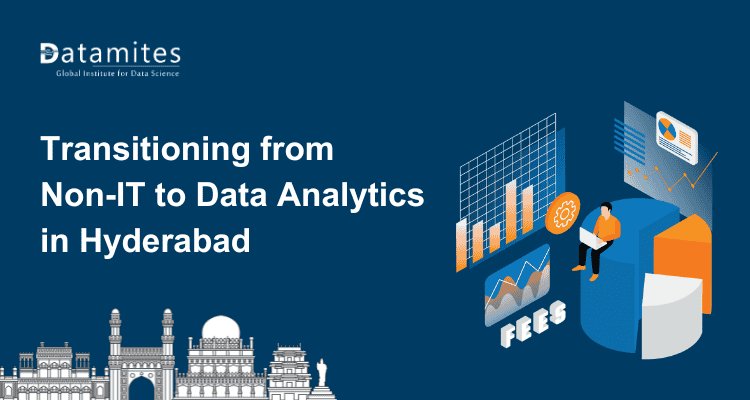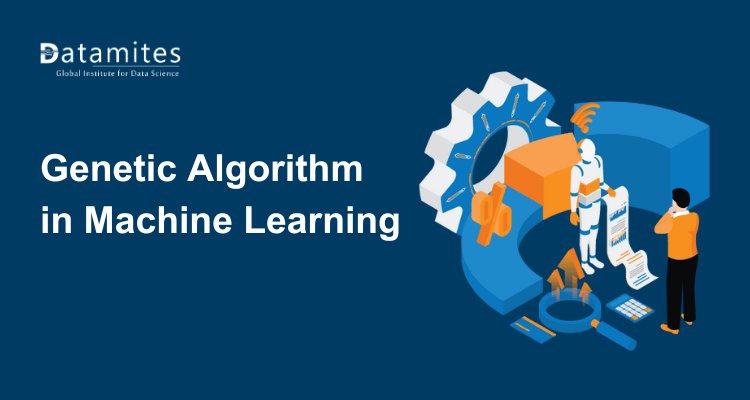How much is the Certified Data Analyst Course Fee in Switzerland?

In today’s data-driven world, the demand for skilled data analysts continues to grow rapidly. Organizations across various industries are relying on data analysis to gain valuable insights, make informed decisions, and drive business success. If you’re considering a career in data analysis or looking to enhance your skills in this field, undertaking a Certified Data Analyst Course in Switzerland can provide you with a solid foundation and open up a world of opportunities.
A Precedence Research analysis projects that the market for data analytics would reach USD 346.33 billion by 2030, with a CAGR of 30.41%.
Switzerland has a reputation for excellence in education and a strong emphasis on technological advancement. As a result, the country offers a wide range of high-quality training programs, including Certified Data Analyst Courses. While specific course fees may vary depending on the institution, the duration, and the curriculum, investing in such a course is considered a valuable step towards a rewarding career in data analysis.
How to become a data analyst in Switzerland?
To become a data analyst in Switzerland, you can follow these general steps:
- Obtain a relevant education: Pursue a bachelor’s or master’s degree in a field related to data analysis, such as statistics, mathematics, computer science, or data science. Swiss universities and institutions offer various programs in these areas.
- Gain proficiency in data analysis tools: Acquire skills in popular data analysis tools and programming languages such as Python, R, SQL, and Excel. Familiarize yourself with statistical analysis, data visualization, and data manipulation techniques.
- Build a strong foundation in statistics and mathematics: Develop a solid understanding of statistical concepts, hypothesis testing, regression analysis, and probability theory. These competencies are necessary for data analysis.
- Gain practical experience: Apply your knowledge by working on real-world data projects. Look for internships, part-time jobs, or volunteer opportunities that allow you to gain hands-on experience in data analysis. This practical experience will enhance your skills and make you more attractive to potential employers.
- Live Project and Internship: Live projects and internships provide data analysts with hands-on experience to work on real-world data problems, collaborate with industry professionals, and apply their analytical skills in practical settings. These opportunities offer valuable learning experiences, networking opportunities, and a chance to demonstrate competence to potential employers.
- Resume Preparation: In preparing a resume for a data analyst role, it is important to highlight relevant skills such as data analysis, statistical modeling, and programming proficiency (e.g., Python, R). Additionally, showcasing experience in data manipulation, visualization, and problem-solving, along with any notable achievements, can help demonstrate the ability to derive insights from data effectively.
- Network within the industry: To further enhance your knowledge and networking opportunities in data analytics in Switzerland, consider attending data analytics events, conferences, and meetups. Engaging with professionals in the field and joining relevant online communities can provide valuable insights and connections. Additionally, participating in data analysis competitions or hackathons can sharpen your skills and showcase your abilities. To receive specialized training, you can explore data analytics training institutes in Basel, which offer comprehensive courses to help you advance in the field.
- Consider certifications: Although not always required, certifications in data analysis or related fields can add credibility to your profile. Look for reputable certifications such as the Certified Analytics Professional (CAP) or Microsoft Certified: Data Analyst Associate.
- Polish your communication skills: Effective communication is essential for a data analyst, as you’ll often need to present your findings and insights to stakeholders. Work on improving your written and verbal communication skills, as well as your ability to present data in a clear and understandable manner.
- Job search and apply: Look for job openings in Switzerland through online job portals, company websites, and professional networking platforms. Tailor your resume and cover letter to highlight your relevant skills and experiences. Be prepared for interviews, which may include technical assessments and data analysis exercises.
Remember that the specific requirements and preferences may vary across different organizations and industries in Switzerland. Research the job market and industry expectations to better align your skillset with the specific requirements of data analyst roles in Switzerland. The salary of a data analyst in Switzerland ranges from CHF 95,000 per year according to a Glassdoor report.
Read the following articles:
What does a data analyst do?
A data analyst is responsible for collecting, organizing, and analyzing large sets of data to uncover meaningful insights and patterns. They play a crucial role in helping organizations make data-driven decisions and improve their overall performance. Here are some key tasks and responsibilities of a data analyst:
- Data Collection: Data analysts gather data from various sources, such as databases, spreadsheets, or online platforms. They may also collaborate with other teams to ensure data accuracy and completeness.
- Data Cleaning and Preparation: Raw data often contains errors, inconsistencies, or missing values. Data analysts clean and preprocess the data, which involves removing irrelevant information, handling missing values, and standardizing formats for analysis.
- Data Analysis: Data analysts utilize statistical methods and data analysis techniques, including descriptive statistics, regression analysis, data mining, and machine learning algorithms, to explore patterns, trends, and relationships within the data and derive valuable insights. Obtaining a data analytics certification in Switzerland can validate their expertise in these analytical approaches.
- Data Visualization: Data analysts create visual representations of the analyzed data, such as charts, graphs, or dashboards. These visualizations make it easier for stakeholders to understand and interpret the findings.
- Reporting and Presentations: Data analysts summarize their findings and communicate them effectively to non-technical stakeholders. They create reports, presentations, or written summaries that highlight key insights and actionable recommendations.
- Decision Support: By providing accurate and relevant information, data analysts assist decision-makers in making informed choices. They contribute to strategic planning, product development, marketing campaigns, and operational improvements based on data-driven insights.
Data analysts play a crucial role in transforming raw data into valuable insights that drive informed decision-making, improve efficiency, and contribute to organizational growth.
Read the following articles:
- Certified Data Analyst Course Fee in Philippines
- Certified Data Analyst Course Fee in Bangladesh
- Certified Data Analyst Course Fee in South Africa
How is DataMites providing Certified Data Analyst Training in Switzerland?
DataMites is a global training institute that provides comprehensive data analytics training in Switzerland.
DataMites, a prestigious global training institute, offers the premium Certified Data Analyst course in Switzerland. This comprehensive program focuses on a no-code approach and covers essential tools such as Excel, MySQL, PowerBI, and Tableau. The course is delivered online and has a duration of six months, comprising 400 learning hours, including 20 hours of live-online training. Additionally, participants receive one year of access to Elearning resources. The course is accredited by IABAC, a globally recognized organization, adding to its credibility and industry acceptance. Successful completion of the program leads to a prestigious data analytics certification in the Switzerland awarded by DataMites.
DataMites provides key features for Certified Data Analyst Course in Switzerland as follows:
- Ashok Veda as an expert trainer,
- A specialised course curriculum,
- High-quality study materials,
- Internship opportunities,
- Case studies,
- 1 Client and 10 capstone projects
- Intensive live online training
- Resume Preparation
DataMites provides online data analytics training in Switzerland, focusing on a well-rounded approach that integrates theoretical concepts with practical applications. The training course is made to give participants the fundamental know-how and abilities needed to succeed in the data analytics industry. By combining theoretical understanding with hands-on practice, DataMites ensures that participants gain a comprehensive understanding of data analytics and its real-world applications.
Certified Data Analyst Course

What is the DataMites Certified Data Analyst Course Fee in Switzerland?
DataMites is a highly respected training institute known worldwide, providing a range of data analytics courses, including Certified Data Analyst Courses in Switzerland. DataMites follows a transparent and competitive pricing model for its Switzerland courses. Typically, the data analyst course fee in Switzerland offered by DataMites falls within the range of CHF 2000 to CHF 3000.
DataMites prioritizes accessibility and affordability for individuals aspiring to become data analysts by providing flexible payment options, installment plans, and scholarships. At DataMites, the certified data analyst course fee in Switzerland typically falls within the range of CHF 2,020 but students can avail of the course at a more affordable price of CHF 1,428 for live-online training. Similarly, for blended courses, the fee ranges from CHF 1,010 but students can take advantage of a discounted rate of CHF 816. This approach ensures that individuals have the opportunity to pursue their data analytics education at a reasonable cost.
Refer the following articles:
- Certified Data Analyst Course Fee in Malaysia
- Certified Data Analyst Course Fee in Saudi Arabia
- Certified Data Analyst Course Fee in UAE
Summary:
The Certified Data Analyst Course Fee in Switzerland can vary across training institutes and the specific programs offered. It is advisable to research and compare different training providers, specifically, those offering data analytics training courses in Zurich, to obtain accurate and up-to-date information on course fees. Factors such as course duration, curriculum, training format (online or in-person), and additional benefits provided may influence the pricing. Some institutes may also offer flexible payment options or installment plans to make the course more accessible to individuals. Investing in a data analytics training course can equip individuals with valuable skills and knowledge, opening doors to rewarding career opportunities in Switzerland’s thriving data analytics industry.
Data Science vs Data Analytics

What is Exploratory Data Analysis






